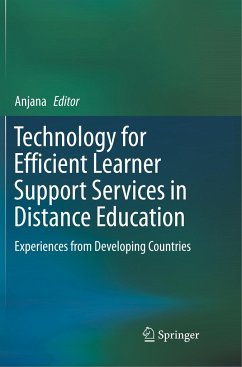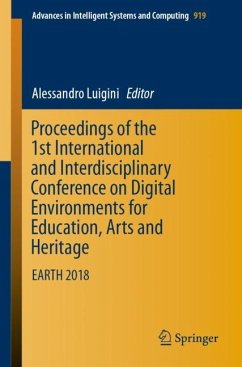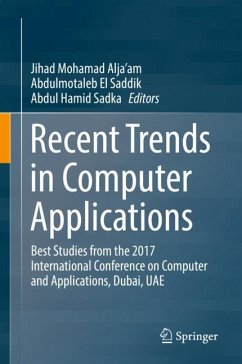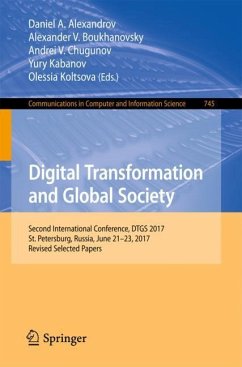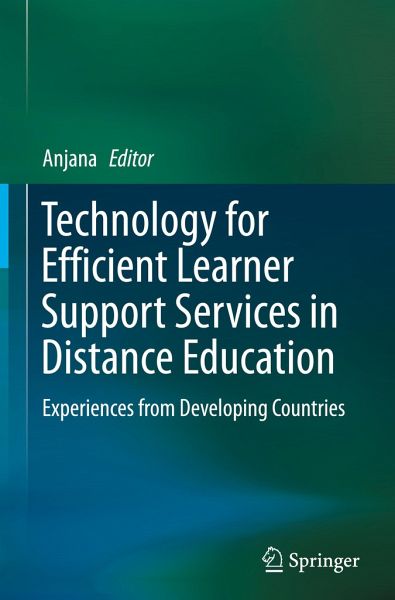
Technology for Efficient Learner Support Services in Distance Education
Experiences from Developing Countries
Herausgegeben: Anjana

PAYBACK Punkte
38 °P sammeln!
This book explores the ways in which technology is being used by various open universities in developing countries to extend learner support services to distance learners. It shares the best practices being followed by different open universities so that these may be replicated by other universities. It provides an overview of the use of various digital technologies, e-learning tools, eLearning platforms, virtual learning environments, and synchronous and asynchronous technologies in open and distance learning (ODL) systems. Moreover, it discusses the importance of ODL systems in providing inc...
This book explores the ways in which technology is being used by various open universities in developing countries to extend learner support services to distance learners. It shares the best practices being followed by different open universities so that these may be replicated by other universities. It provides an overview of the use of various digital technologies, e-learning tools, eLearning platforms, virtual learning environments, and synchronous and asynchronous technologies in open and distance learning (ODL) systems. Moreover, it discusses the importance of ODL systems in providing inclusive education in developing countries through the use of ICT with a special focus on adult, rural and elderly learners, as well as the role of technology in science education through ODL system. A transformative model of sustainable collaborative learning is presented, integrating concepts based on theoretical frameworks to increase the flexibility and solve existing issues in developing countries, which may be used for policy changes in distance learning.
It concludes by examining various challenges in successfully implementing technology for effective delivery of learner support services in distance education systems in developing countries and exploring the strategies required to overcome these challenges.
It concludes by examining various challenges in successfully implementing technology for effective delivery of learner support services in distance education systems in developing countries and exploring the strategies required to overcome these challenges.



